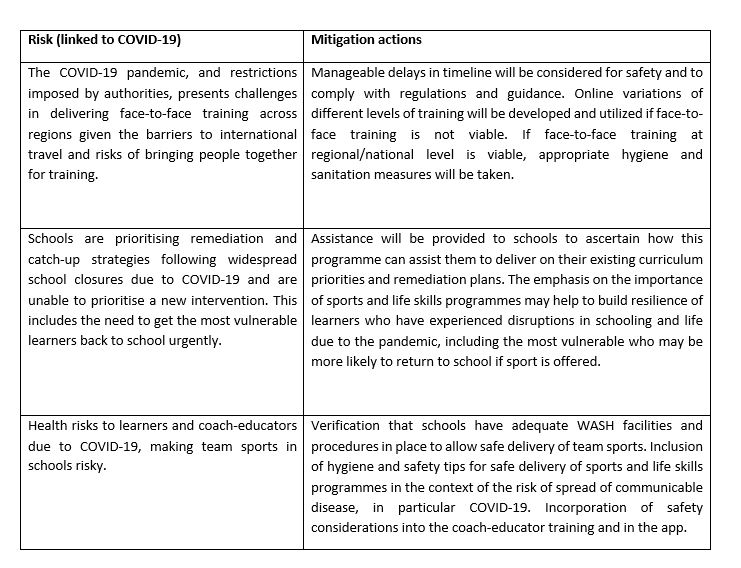The COVID-19 pandemic has profoundly affected the sports sector, including routine sports and physical activity which may pose a risk to participants, coaches, administrators, and spectators. The pandemic has also significantly impacted the education sector, resulting in school closures and profound disruption, including to physical education. These challenges, among many others caused by the pandemic, may hamper the ability to deliver the Football for Schools (F4S) programme as originally intended. Further, it may be challenging for schools to prioritise a new intervention such as F4S in light on other priorities and catch-up strategies, as well as the safety risks posed by team sports.
Responding to the COVID-19 pandemic
Ensuring the health and safety of all those involved in football is a major priority for FIFA, including in the F4S Programme. FIFA has partnered with the World Health Organisation and United Nations to create a COVID-19 Resource Centre offering guidance to people to protect their health and wellbeing.
